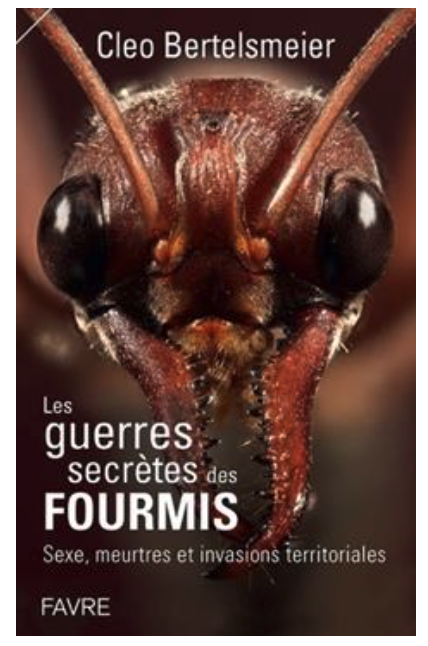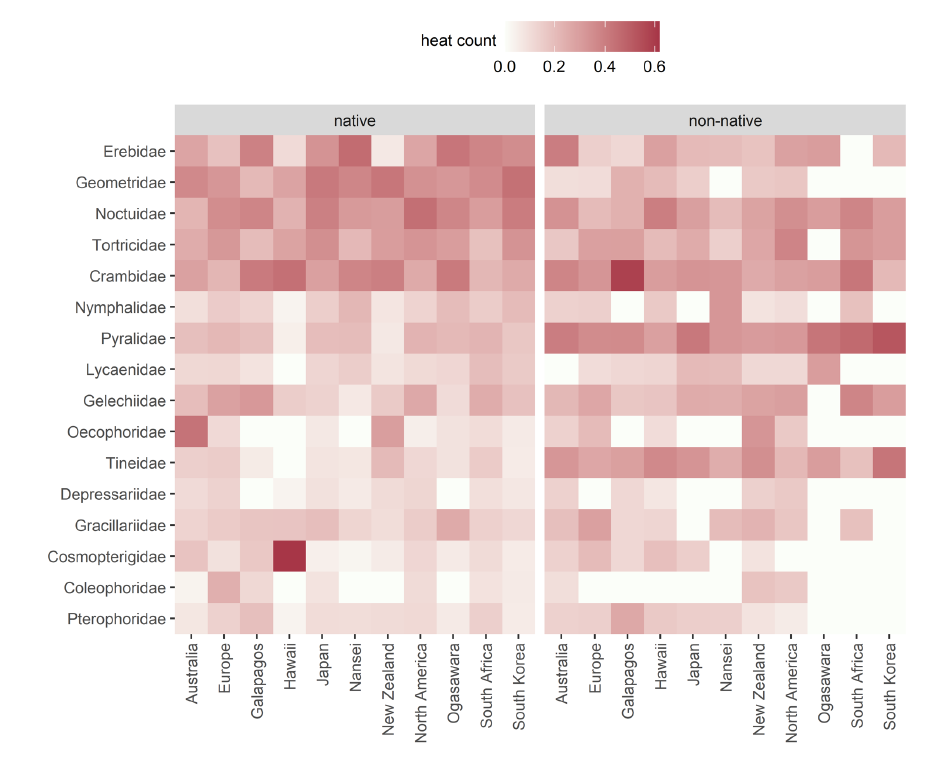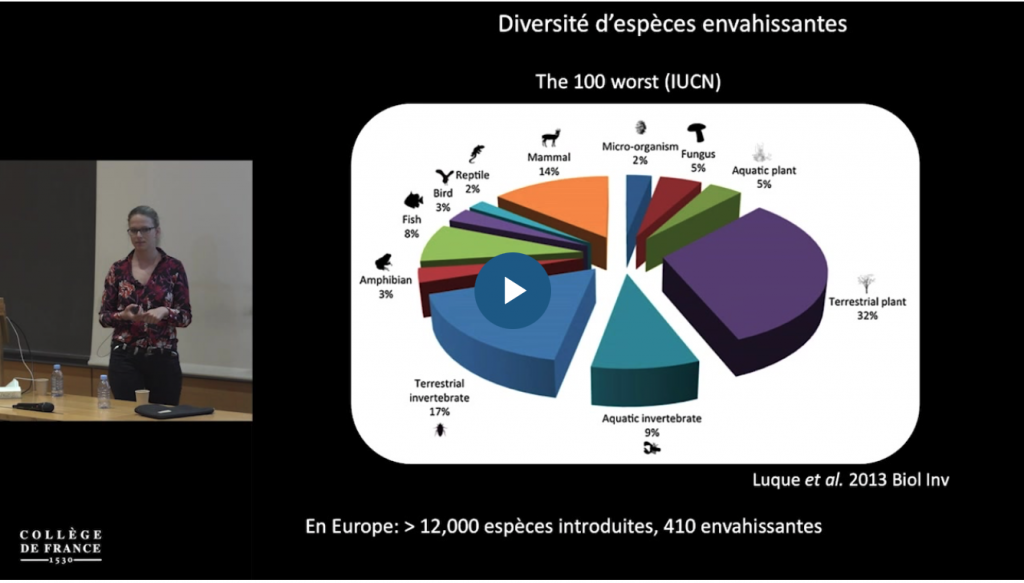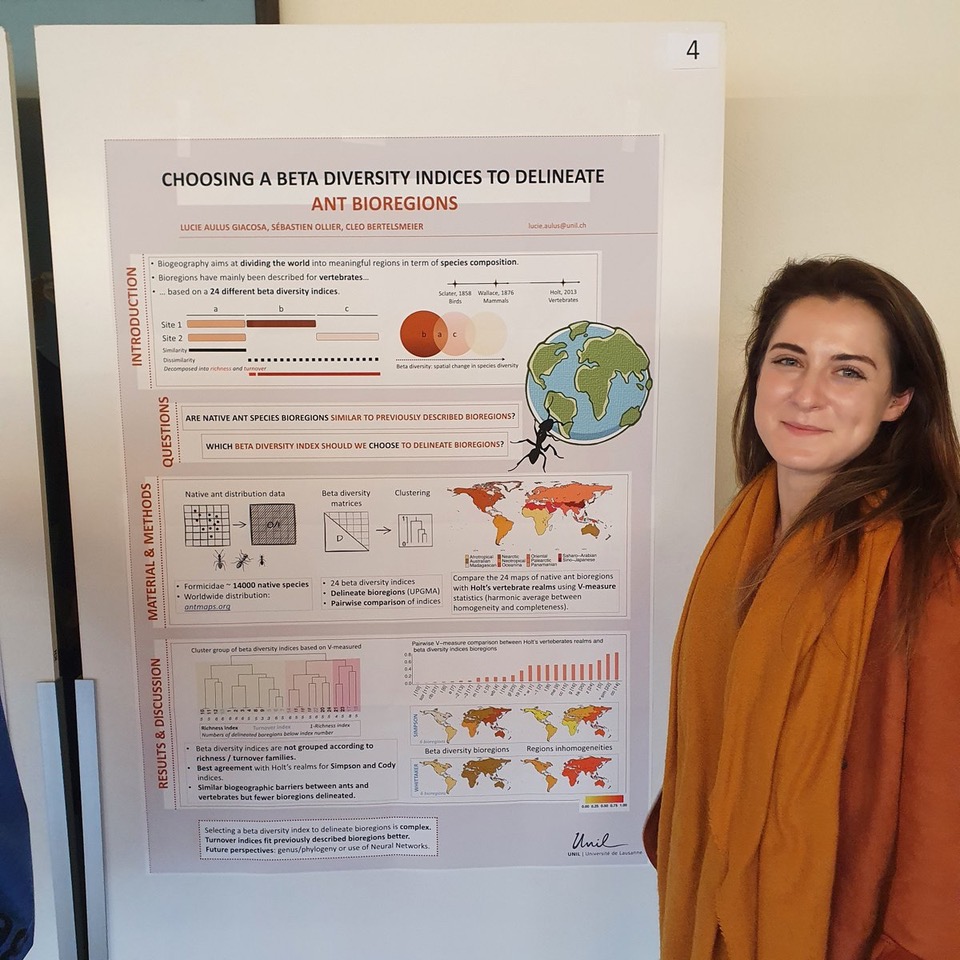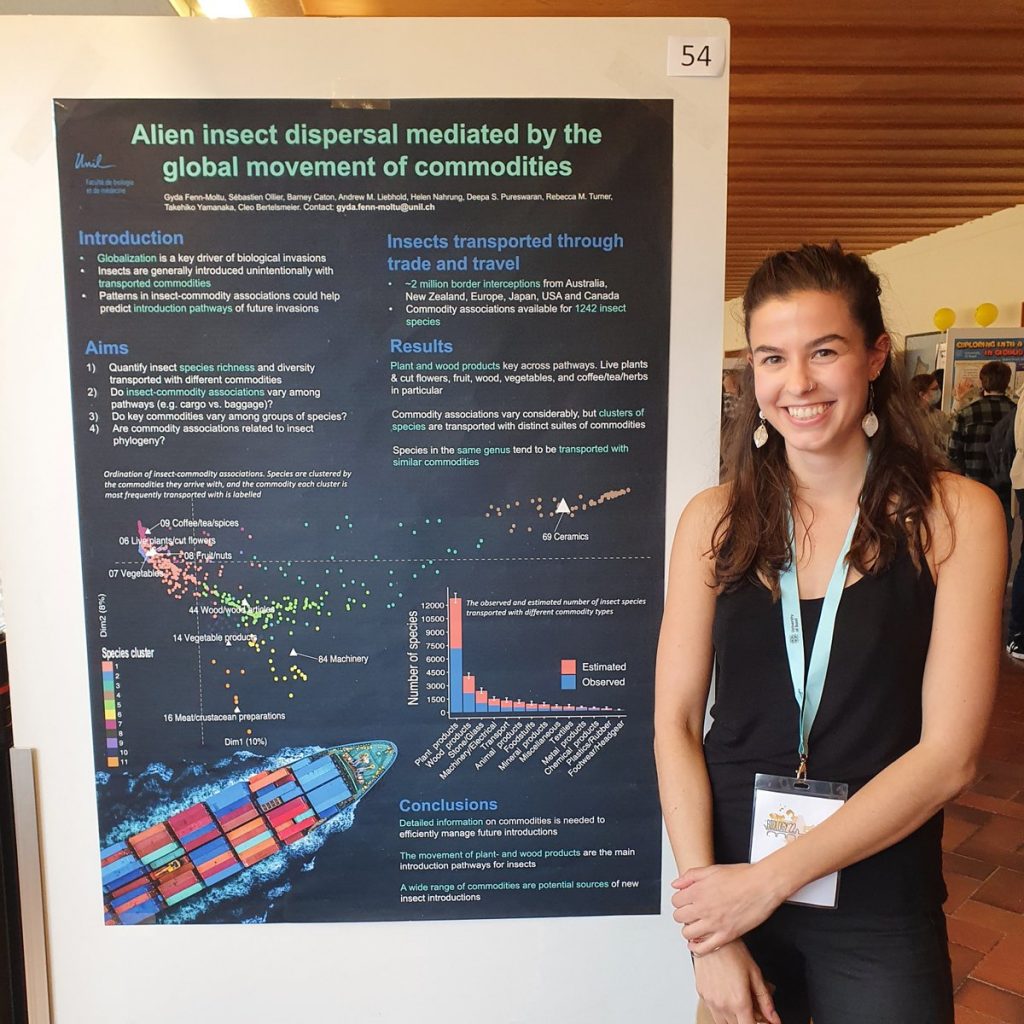Jelena, Sébastien and Cleo have published a study on thermoregulatory traits and climatic niches in Cataglyphis ants in collaboration with Spanish and French researchers. see Link.
Predictions of future species distributions rest on the assumption that climatic conditions in the current range reflect fundamental niche requirements. Here, we measured heat tolerance, chill coma recovery, body size and phylogenetic relationships in 19 desert specialist ants in the genus Cataglyphis to test if these important determinants of fundamental niches are good predictors of species realized niches. We modelled species climatic niches using 19 bioclimatic variables from WorldClim for recorded occurrence of each species. None of the determinants of the species’ fundamental niche were linked to their realized climatic niche, modelled using species distribution models. However, both heat tolerance and chill coma recovery were highly correlated with body size andall three thermoregulatory traits were phylogenetically constrained, suggesting they reflect fundamental requirements of each species.Thes results challenge the basic assumption of climatic niche modelling, that the realized niche can be used as a proxy for determining fundamental nicherequirements. These findings are particularly concerning for studies that use the species’ current realized niche to predict their responses to climate change.
Bujan, J., Ollier, S., Villalta, I., Devers, S., Cerdà, X., Amor, F., Dahbi, A., Bertelsmeier, C.*, Boulay, R.* (2022) Can thermoregulatory traits and evolutionary history predict climatic niches of thermal specialists? Diversity and Distributions, https://doi.org/10.1111/ddi.13511, *equal contribution
